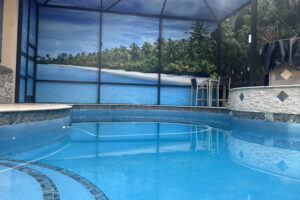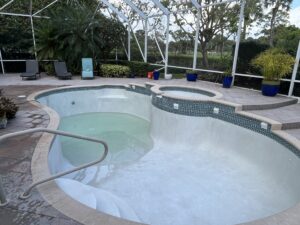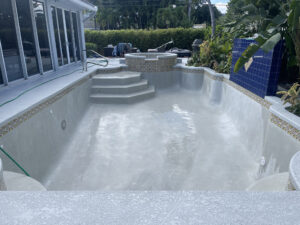A pool heat pump works by extracting heat from the outside air and transferring it to the pool water. It uses a refrigeration cycle, similar to an air conditioner but in reverse, to efficiently heat the water, making it an energy-efficient way to warm pool temperatures.
Imagine extending your swimming season and enjoying a warm swim, inviting your friends/family to the pool even during cooler months. That’s the magic of pool heat pumps! But how exactly do these nifty devices work? Let’s buckle down into the fascinating world of pool heat pumps and unlock the secrets to year-round poolside bliss.
Table of Contents
Importance Of Pool Heat Pumps
Pool heat pumps play a crucial role in maintaining the desired temperature of a swimming pool, regardless of the weather conditions. By using a pool heat pump, pool owners can extend their swimming season and enjoy the pool for a longer period of time. This is especially important in regions with colder climates, where the water temperature tends to drop significantly.
With a pool heat pump, the water can be heated efficiently and effectively, providing comfort and enjoyment to swimmers. Additionally, pool heat pumps are eco-friendly alternatives to traditional heaters, as they utilize the heat from the outside surrounding air rather than relying on fossil fuels. This reduces the carbon footprint and contributes to a more sustainable pool heating solution.
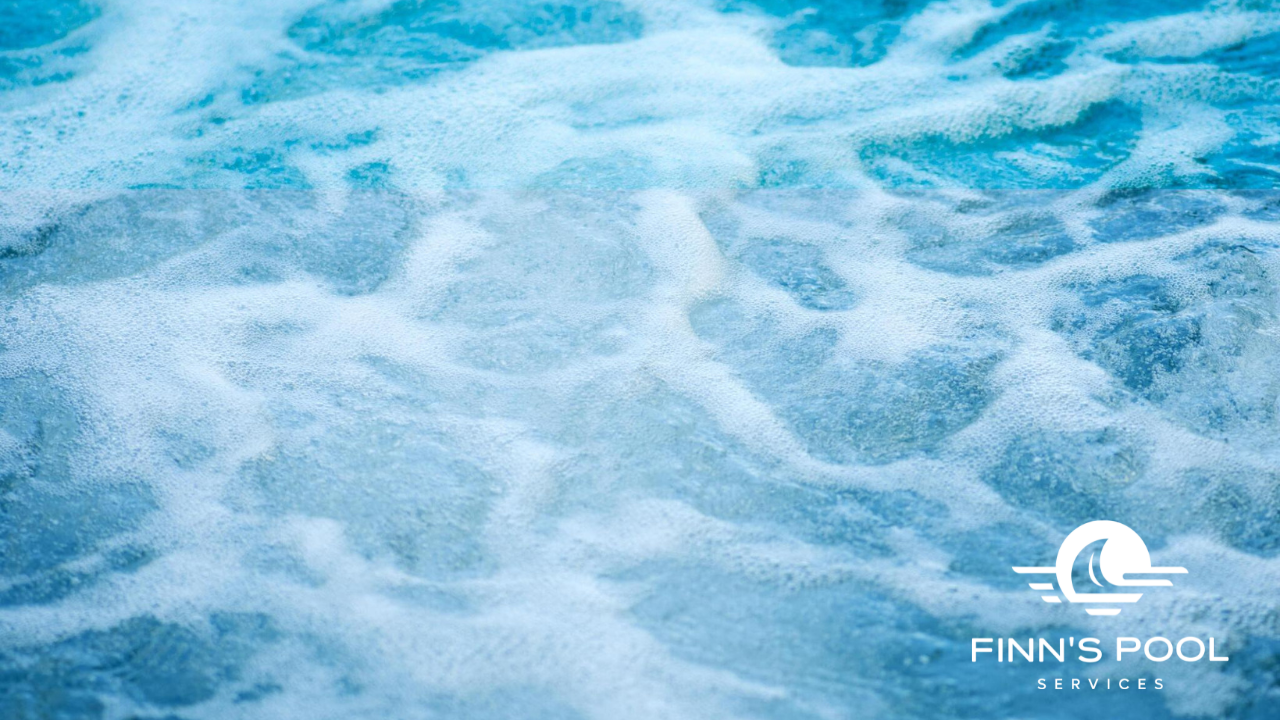
Benefits Of Using A Pool Heat Pump
- Energy Efficiency: Compared to traditional natural gas or propane heaters, pool heat pumps use significantly less energy, translating to cost savings on your electricity bills.
- Environmentally Friendly: By utilizing ambient air heat, pool heat pumps have a lower carbon footprint, making them a more sustainable choice.
- Quiet Operation: Unlike gas heaters, pool heat pumps operate quietly, ensuring a peaceful backyard ambiance.
- Low Maintenance: These systems require minimal maintenance, making them hassle-free additions to your pool setup.
Working Principles:
Pool heat pumps work on the principles of extracting heat from the surrounding air outside and transferring it to the pool water. Here is a simplified explanation of how it works:
Heat Transfer Process In A Pool Heat Pump:
A pool heat pump transfers heat and warms the water using a simple mechanism. To begin, it absorbs heat from outside ambient air, even if it is cool. Then it employs a unique refrigerant fluid that easily converts to a gas. The heat pump compresses this warm gas, increasing its temperature further. The hot gas is then passed through a heat exchanger coil, transferring the heat to the pool water. As the gas loses heat, it condenses back into a liquid and then the cycle repeats itself.
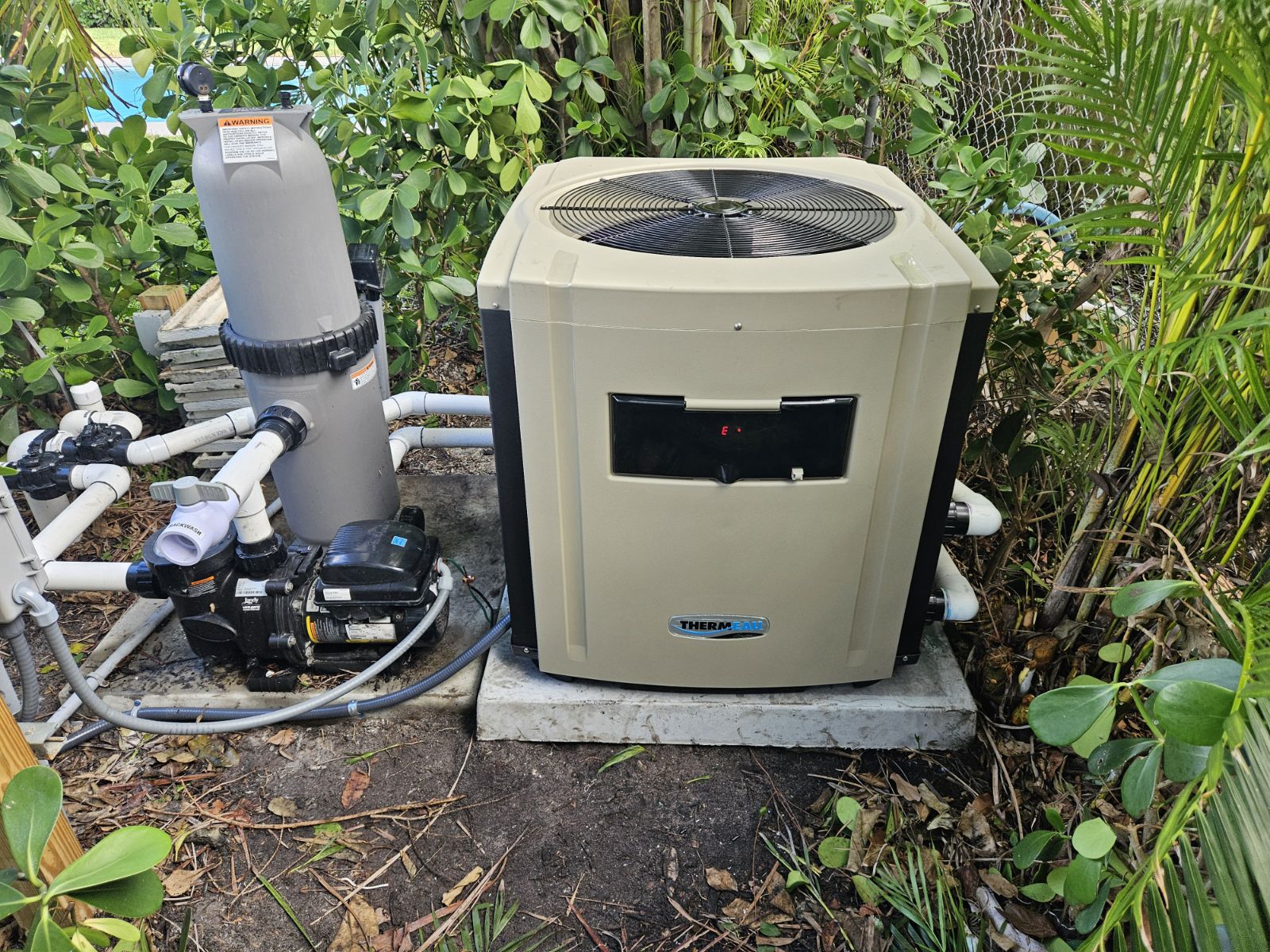
Components Of A Pool Heat Pump System:
A compressor, evaporator coil, condenser coil (heat exchanger,) fan, and refrigerant make up a pool heat pump system. The compressor compresses the warm refrigerant, increasing its temperature, while the evaporator coil absorbs heat from the surrounding air. The heated refrigerant then distributes its warmth to the pool water via the condenser coil, which is assisted by an air circulation fan.
Understanding The Refrigeration Cycle
In cooling systems, the refrigeration cycle is a continuous operation. The compressor compresses a low-pressure, low-temperature gas (refrigerant), raising its temperature and pressure. The heated, pressurized gas travels through the condenser, dissipating heat and changing into a high-pressure liquid.
The liquid flows to the expansion valve, where it experiences a quick pressure decrease and transforms into a cool, low-pressure liquid. This liquid then enters the evaporator, where it absorbs heat from its surroundings and condenses back into a low-pressure gas.
The cycle is repeated, transferring heat efficiently and maintaining a constant temperature within a refrigeration system. Think of a heat pump as an air conditioner that works in reverse.
Role Of The Compressor And Condenser
In this process for a pool heat pump, the compressor takes warm refrigerant and compresses it, converting it to high pressure and temperature. Then the condenser releases heat from the hot gas into the atmosphere, causing it to condense into a high-pressure liquid. Both are very important parts of the refrigeration cycle.
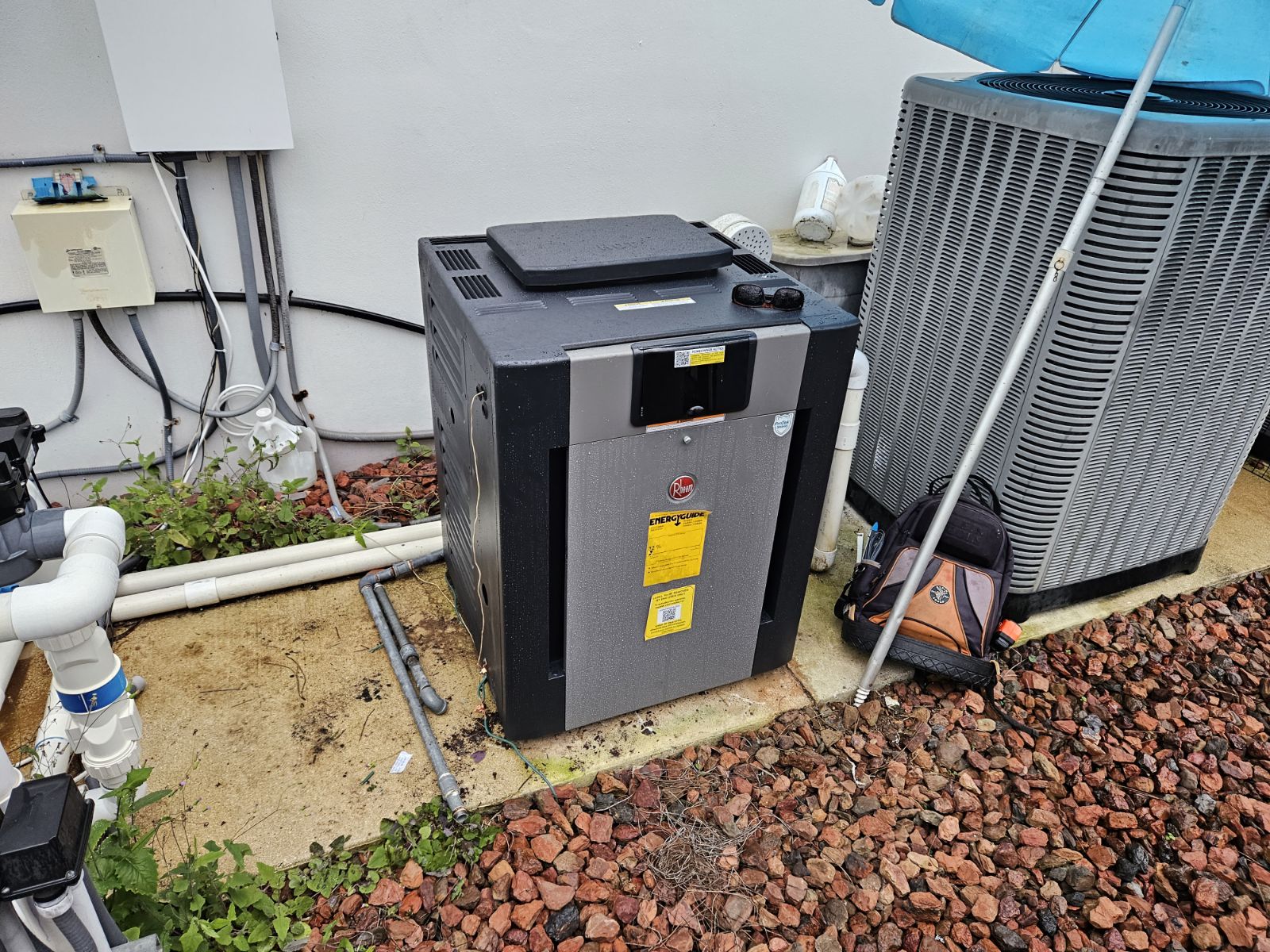
Operation And Maintenance
Operate a pool heat pump by setting temperatures, and ensuring proper installation. Maintained regular checks, cleaned coils, and troubleshooted issues promptly.
Setting Up And Operating A Pool Heat Pump
When you set up a heat pump, you need to make sure it fits with sufficient area for airflow. Operate it by adjusting the thermostat to set the desired temperature. Regularly check for obstructions around the unit and keep air filters clean for optimal performance.
Maintaining And Troubleshooting Common Issues
If you want good conditions for pool heat pumps, you should regularly clean coils, and check refrigerant levels. There are common issues like reduced heating efficiency or unfamiliar noises that may indicate problems, which require professional troubleshooting and repairs.
Energy Efficiency Tips For Pool Heat Pumps:
If you set temperatures conservatively it will enhance energy efficiency. Schedule regular maintenance to keep the system running efficiently. You should look forward to a more energy-efficient model if your present one is old.
Extending The Lifespan Of A Pool Heat Pump:
Follow the manufacturer’s instructions for usage, regular maintenance, and early repairs to extend the longevity. Monitor performance regularly and address any issues as soon as they arise.
Conclusion
In summary, a pool heat pump utilizes the warmth present in the air to heat a refrigerant, which is then compressed to increase its temperature. The hot refrigerant transfers its heat to the circulating pool water through a coil system, providing an efficient and environmentally friendly way to heat a pool. This process is particularly effective in moderate to warm climates, as it relies on the ambient air temperature to generate heat for the pool water.
Finn’s Pool Services gives all these facilities to the customer. Our skilled and experienced workers operate pool heat pumps by setting temperatures and ensuring proper installation. We also maintain regular checks, clean coils, and troubleshoot issues promptly in Palm Beach County, FL.
Pool Service Areas We Cover
- Boca Raton
- Delray Beach
- Boynton Beach
- Lake Worth Beach
- Palm Beach
- Wellington
- North Palm Beach
- Palm Beach Gardens
- Jupiter
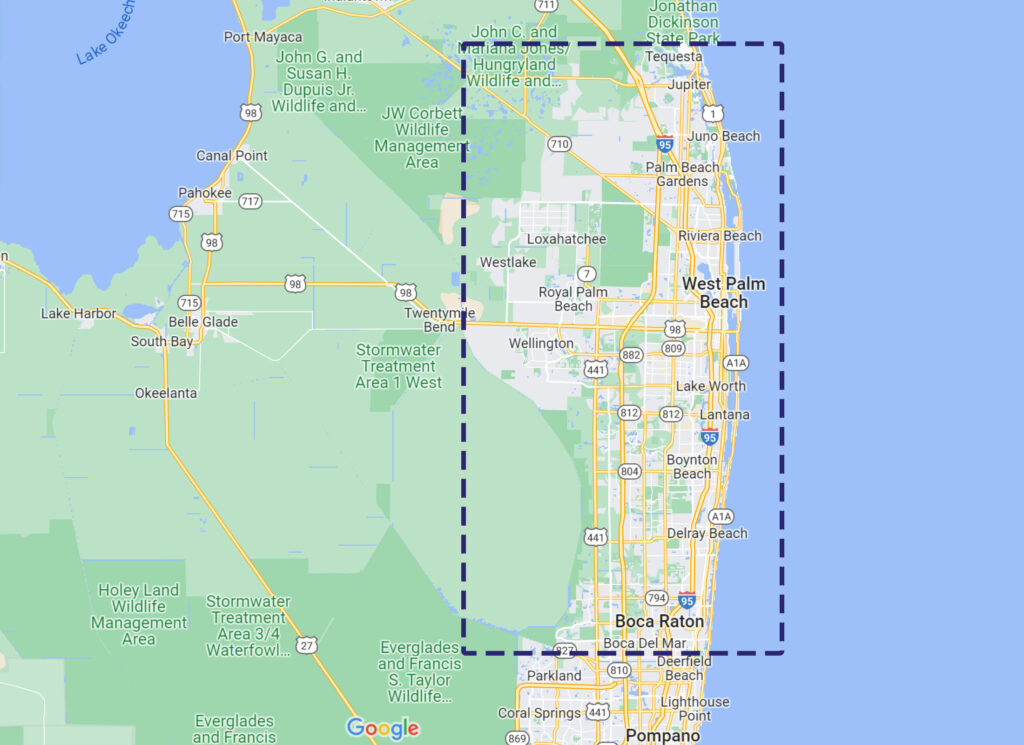
BOOK YOUR APPOINTMENT NOW!
- Contact us today to schedule a FREE estimate for pool maintenance service. We look forward to helping you enjoy your pool to the fullest!
- Phone: 561-702-6351
- Email: [email protected]
- Address: 5001 S Dixie Hwy Ste B #101 West Palm Beach, FL 33405

